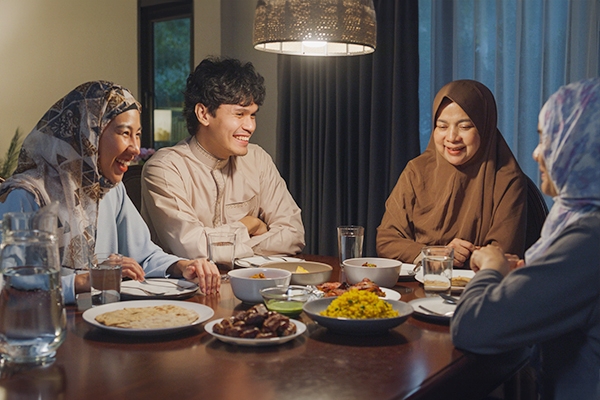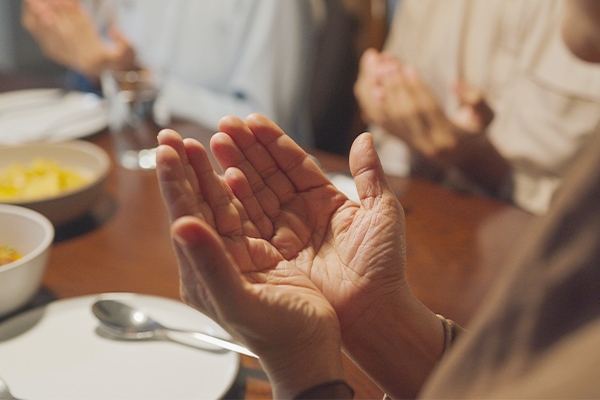Enjoy a Sweet Eid al-Fitr Without Spiking Your Blood Sugar

Eid al-Fitr is a moment full of happiness awaited after a month of fasting. This day of victory is associated with family togetherness, friendship, and, of course, a variety of appetizing dishes.
People with diabetes may find this celebration a challenge. Various sugary and fatty meals, as well as an undisciplined diet, can affect blood sugar balance.
So, how can people with diabetes enjoy the celebration without sacrificing their health? Here are some wise steps that can be applied:

1. Plan your diet well
Maintain a pre-planned meal schedule. Plan a menu of foods and snacks to be consumed during the celebration. Apply mindful eating, or eating with full awareness, so that we enjoy food more.
Limit portion sizes by recognizing hunger and satiety signals. Choose healthier and lower-sugar foods to keep blood sugar levels stable.
2. Reduce your consumption of processed carbohydrates
Lontong, chicken opor, and rendang are popular Eid dishes that are hard to miss.
However, remember that processed carbohydrates have a high glycemic index, which can cause blood sugar spikes. As an alternative, balance it with low-fat protein, healthy fats, and high-fiber foods like vegetables and whole grains.
3. Choose healthier snacks
Do you want to try nastar, kastengel, or putri salju? It's best to limit your consumption of cookies that are high in sugar and fat.
Read more: Behind The Tasty Cookie.
Choose healthier snacks like nuts, fresh fruit, or whole grains. When buying packaged foods, check the nutrition label to ensure that the sugar content is no more than 10% of the total energy.
4. Limit your sugar intake
Diabetics are recommended to reduce their daily sugar intake to 50 grams (about four tablespoons) daily.
Unfortunately, many processed foods and sweet drinks, including fruit syrup or young coconut ice, are high in sugar. Choose healthier options, such as infused water or herbal tea without additional sweeteners.
5. Stay active
Include physical activity in your daily routine, even during the holiday season. Take a short walk after meals or light exercise to help regulate your blood sugar levels.
Plan family activities that involve movement, such as outdoor games or group exercises, to stay active while spending time with loved ones.
6. Check your blood sugar levels
Remember your blood sugar levels closely during the holiday season, especially if you’re trying new foods or deviating from your usual routine.
Bring a glucose monitor and check your blood sugar often to ensure it’s within safe limits. Continue taking your diabetes medication regularly, even on vacation, to keep your blood sugar levels under control.
7. Stay hydrated
Drink plenty of fluids to stay hydrated. Limit sugary drinks and opt for water, herbal teas, or sugar-free beverages.
Replace your sugary drinks (including fruit juice) with water or low-calorie beverages to manage glycaemia and reduce cardiometabolic disease risk. This also helps to reduce the consumption of foods with added sugars that can displace healthier, more nutrient-dense food choices.
Fuel your needs based on your needs. The recommended daily intake is around 2 liters or eight glasses.
8. Manage stress
Eid celebrations can be stressful due to social obligations, family gatherings, and other factors. Practice stress management techniques, such as deep breathing, meditation, or yoga, to keep stress levels in check.
Prioritize self-care and take time to relax and unwind during the festivities. People with diabetes can still celebrate Eid without sacrificing their health. Have a wise and healthy Eid celebration!



